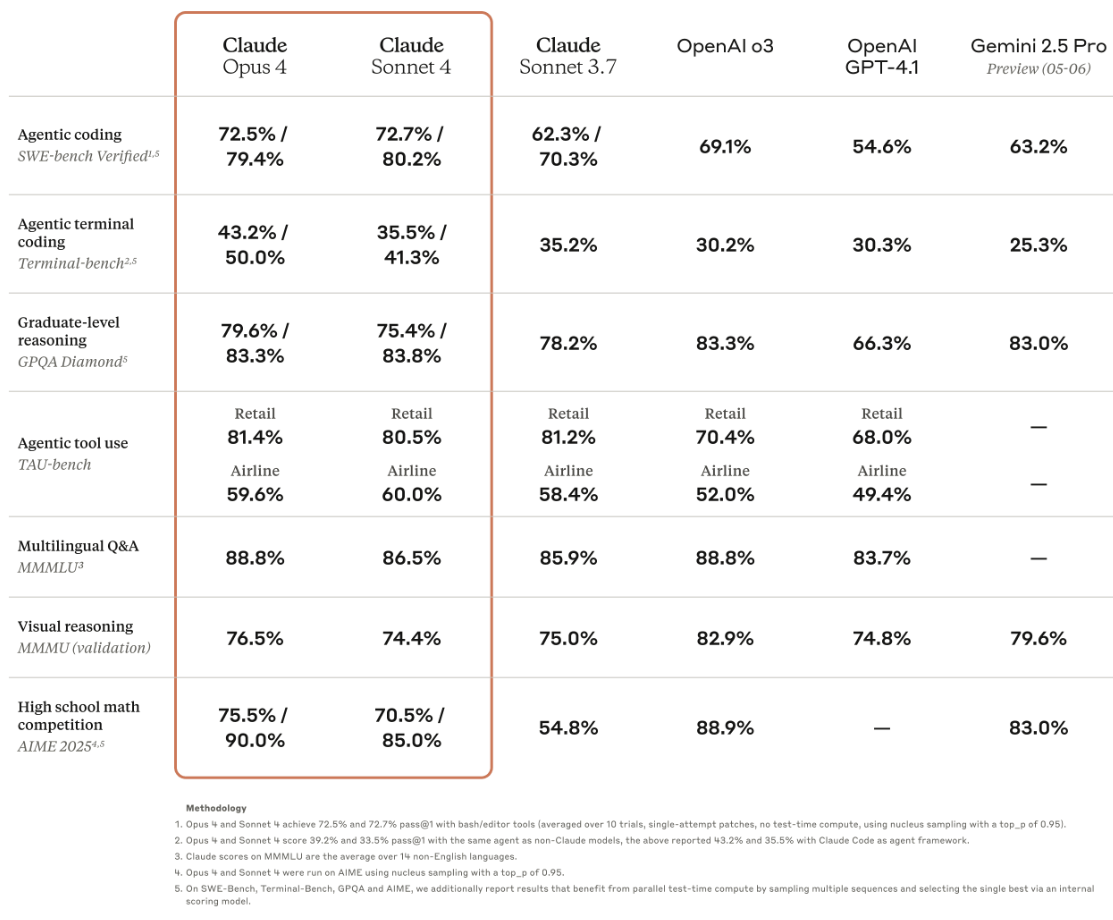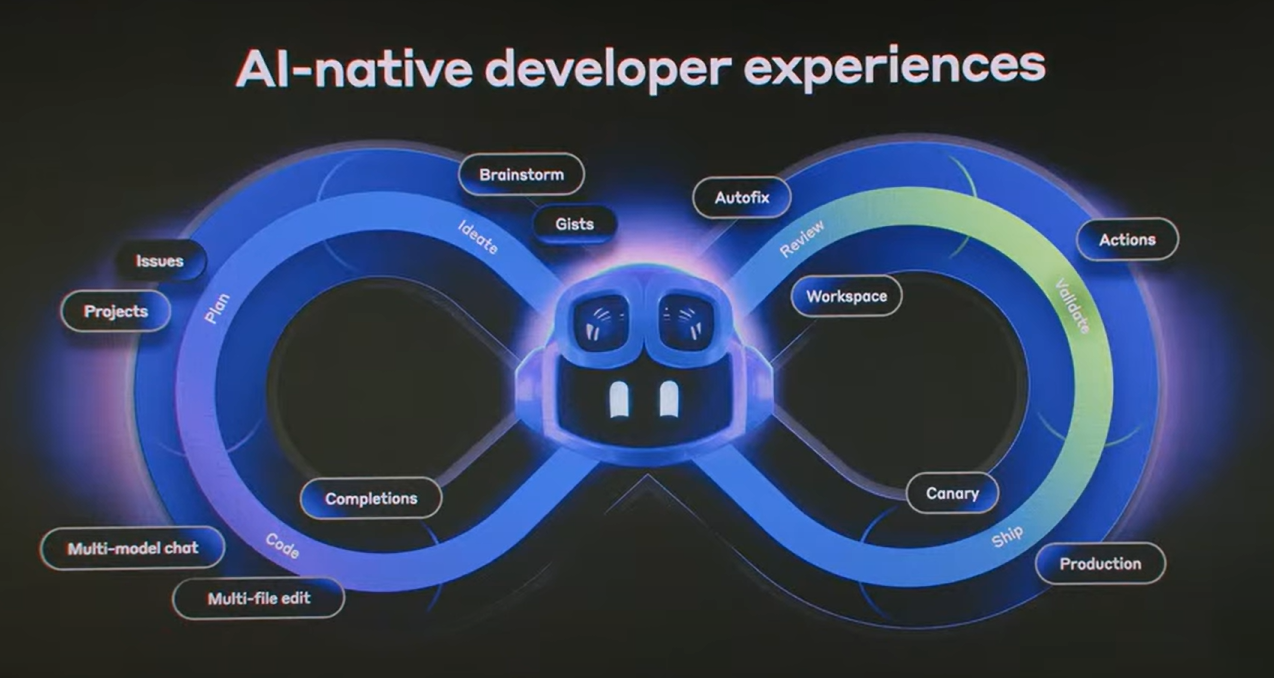Anthropic advances with Claude 4, APIs, MCP highlight a move upstack
Anthropic launched a set of developer tools that make it easier to build AI agents and launched new Claude 4 models. The news, outlined at Anthropic's first developer conference, highlights how large language model companies are branching out.
For enterprises, the most interesting item from Anthropic's conference is new API capabilities. Anthropic launched a code execution tool, a Model Context Protocol (MCP) connector, Files API and the ability to cache prompts for up to one hour.
These API tools ride along with the launch of Claude 4 Opus and Sonnet 4. The combination means that an AI agent can use the MCP connector to an application like Asana to reference tasks and work, upload relevant reports via Files API and analyze progress with the code execution tool.

Speaking during a chat with Chief Product Officer Mike Krieger, Anthropic CEO Dario Amodei said he has been surprised by the MCP support. "I was surprised at the pace at which everyone seems to have standardized around MCP," said Amodei. "It was very strange. We released it in November. I wouldn't say there was a huge reaction immediately, but within three or four months it became the standard. There's this feeling of being on the spaceship."
This workflow, outlined in an Anthropic blog, highlights how the company is building out a toolbox for AI agents.
- Agentic AI protocols: MCP and A2A today, many more tomorrow
- Lessons from early AI agent efforts so far
- Every vendor wants to be your AI agent orchestrator: Here's how you pick
- Agentic AI: Everything that’s still missing to scale
- BT150 zeitgeist: Agentic AI has to be more than an 'API wearing an agent t-shirt'
Anthropic's developer conference kicked off in the same week as Microsoft Build and Google I/O. Both of those conferences were also AI agent heavy.

Here's the news in a nutshell:
- Anthropic API has a code execution tool that will give Claude the ability to run Python code in a sandbox to produce insights and visualizations. Claude then becomes more of a data analyst that can handle use cases such as financial modeling, scientific computing, business intelligence and statistical analysis.
- The MCP connector on Anthropic's API will connect Claude to any remote MCP server without code. Claude will now connect, retrieve tools, reason, execute tool calls, manage authentication and return a response with integrated data. MCP has garnered wide support in a short amount of time.
- Files API simplifies storage and access of documents for Claude applications. Instead of managing file uploads in each request, you can upload documents once.
- The extended prompt catching will improve agent workflows without more expense.
- Claude Opus 4 and Claude Sonnet are advances in coding and reasoning, respectively. The models can alternate between reasoning and tool use, use tools in parallel, and work well with GitHub Actions.
In addition, Claude Opus 4 and Sonnet 4 are hybrid models with two modes: Near instant responses and extended thinking for deep reasoning. Both models will be available on Anthropic's API, Amazon Bedrock and Google Cloud Vertex API. Pricing is on par with previous Opus and Sonnet models.
Amodei said the industry is headed to a world where you can dispatch agents to do things and models overall will become more autonomous. "We're heading to a world where a human developer can manage a fleet of agents, but I think continued human involvement is going to be important for the quality control and make sure agents do the right things and get the details right."
The Anthropic CEO noted that use cases for these autonomous models and agents would be for software development, cybersecurity, scientific research and biomedical. Amodei also said that it's possible that MCP will hook up to real world data and equipment.
- Anthropic Claude Research integrates with Google Workspace
- Databricks forges partnership with Anthropic, adds innovative system to enhance open source LLMs
- Anthropic's Economic Index highlights AI augmenting mid-to-high salary jobs
- Anthropic outlines most popular Claude use cases
Constellation Research's take
Holger Mueller, an analyst at Constellation Research, said Anthropic's moves are an example of foundational model players moving upstream and branching out. For instance, OpenAI is moving into hardware and Cohere is focused on collaboration as is Anthropic.
Mueller said:
“The LLM vendors are working up the stack into the PaaS layer. Anthropic is a great example of this move with its latest release. Not only is it providing more MCP support, but also giving developers the ability to upload files easier, leverage analytic libraries, and provide a longer context window.
Anthropic's moves will give developers the ability to build agents in a more efficient way. It is good news for CxOs, as they have more choice as LLM vendors move up stack and bump into the traditional PaaS players. Ironically, some of these new competitors will be partners and even investors in Anthropic. It will be interesting to see how these relationships will develop further since Anthropic is on a collision course with ancient software offerings."

